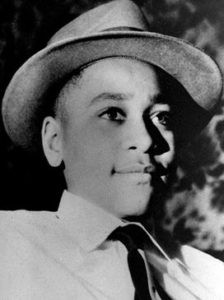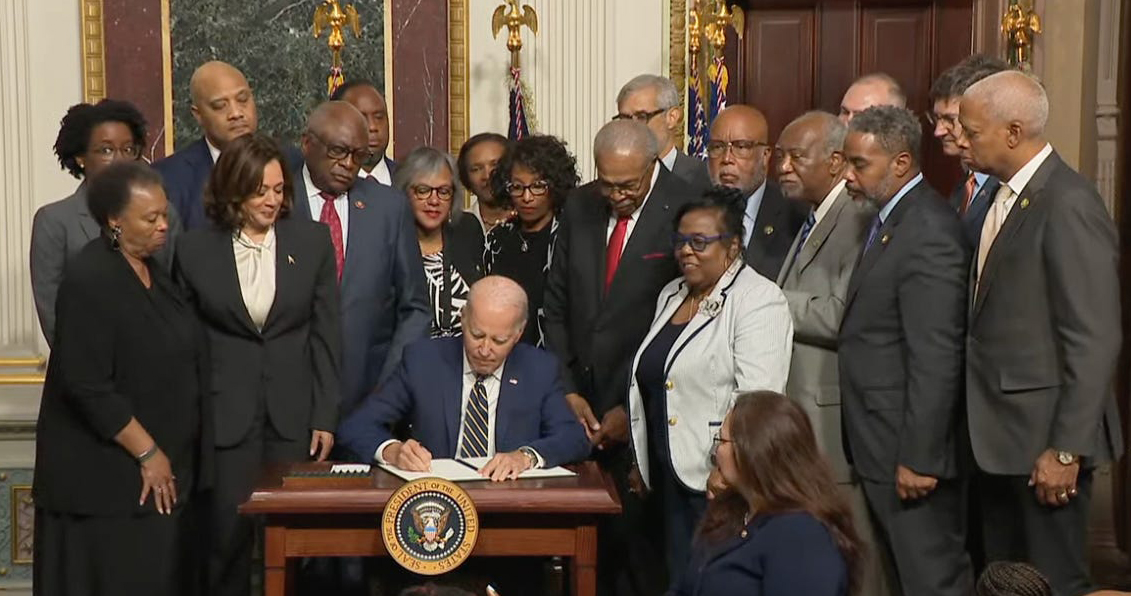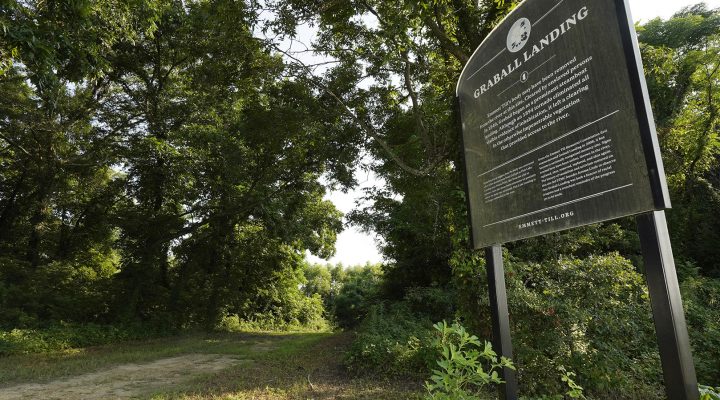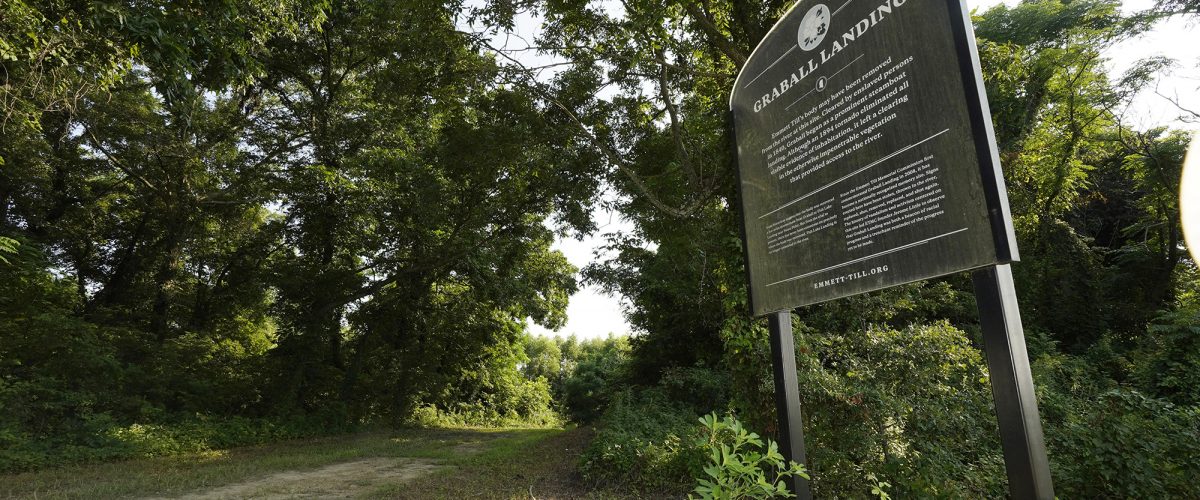This week, I had the privilege of attending a reception held at the Department of the Interior in Washington, D.C., to celebrate President Joe Biden’s signing of a proclamation establishing the Emmett Till and Mamie Till-Mobley National Monument in Mississippi and Illinois.
I wrote about the multi-year effort to create this national monument in my forthcoming book, The Hidden Roots of White Supremacy and the Path to a Shared American Future, which contains three chapters on the history of white racial violence and the ongoing efforts of remembrance and repair in the Mississippi Delta.

Emmett Till
I’ve been in Washington, D.C., now since 2005, and this is the biggest group of Mississippi-connected folks I’ve ever seen in a single room here. Shoutouts to Vann Newkirk II, who works at The Atlantic in D.C. but whose extended family is from the Delta; Belinda Stewart from Belinda Stewart Architects in Eupora; Wright Thompson, a talented and eclectic writer (who writes on topics as varied as sports, bourbon, and Emmett Till) who hails from Clarksdale; Willie Williams, a Methodist pastor from Sumner; and Dave Tell, whose excellent book, Remembering Emmett Till, was an important source for my own. Dave is from the West Coast, but he’s now spent enough time in Mississippi telling Emmett Till’s story, and the story of the people who are telling Emmett Till’s story, that we’ll claim him.
Here’s what the new proclamation creates (cited from the full text of the White House fact sheet):
Today, on what would have been Emmett Till’s 82nd birthday, President Biden will sign a proclamation establishing the Emmett Till and Mamie Till-Mobley National Monument in Mississippi and Illinois. The new national monument will tell the story of the events surrounding Emmett Till’s murder, their significance in the Civil Rights movement and American history, and the broader story of Black oppression, survival and bravery in America.
The new national monument will be anchored at three historic sites in Chicago; Sumner, Miss.; and just outside of Glendora, Miss. These sites are central to Emmett Till’s racially motivated murder in 1955 and the defining events that followed — including the courageous activism and leadership of his mother, Mamie Till-Mobley.
You can watch the moving 15-minute signing ceremony by clicking here. The ceremony included brief but powerful remarks by Vice President Kamala Harris, Wheeler Parker, Emmett Till’s cousin who was in the house when Emmett was abducted in the middle of the night, and President Joe Biden.

President Joe Biden signs a proclamation establishing the Emmett Till and Mamie Till-Mobley National Monument in Mississippi and Illinois. (White House image)
Here are some highlights.
Vice President Kamala Harris:
Today we gather to remember our history. … The story of Emmett Till and the incredible bravery of Mamie Till Mobley [that] helped fuel the movement for civil rights in America, and their stories continue to inspire our collective fight for justice. …. Our history as a nation is born of tragedy and triumph, of struggle and success. That is who we are. And as people who love our country, as patriots, we know we must remember and teach our full history, even if it is painful — especially when it is painful. Today there are those in our nation who would prefer to erase or even rewrite the ugly parts of our past, those who attempt to teach that enslaved people benefitted from slavery. …
“Let us not be seduced into believing that somehow we will be better if we forget.”
Let us not be seduced into believing that somehow we will be better if we forget. We will be better if we remember. We will be stronger if we remember. We all here know it is only by understanding and learning from our past that we can continue working together to build a better future.
Wheeler Parker:
I was born in Mississippi. I spent my early years focused on filling a nine-foot sack. I was focused on making my quota, not making history. … From a time when we lived in fear to a time when the president and vice president gave us this great hope. … This is what America means to me. … It has been quite a journey from the darkness to the light. When I sat with my family on the night of terror, when Emmett Till, our beloved Bobo, was taken from us, taken to be tortured, to be brutally murdered. … Back then in the darkness I could never imagine a moment like this, standing in the light of wisdom, grace and deliverance.
President Joe Biden (who opened with a personal revelation, that he struggled to temper his anger as he prepared his remarks for the ceremony):
At a time when there are those who seek to ban books, to ban history, we are making it crystal, crystal clear. Darkness and denialism can hide much, but they erase nothing. We can’t just choose to learn what we want to know; we have to learn what we should know. We should know about our country. We should know everything: the good, the bad, the truth of who we are as a nation. That’s what great nations do, and we are a great nation.
“Darkness and denialism can hide much, but they erase nothing.”
Only with truth comes healing, justice, repair and another step forward toward forming a more perfect union. We’ve got a hell of a long way to go. That’s what’s going to happen when visitors from all backgrounds learn the history of Emmett Till and Mamie Till Mobley through our national monument. Telling the whole truth about the history of our nation is important. …
Silence is complicity. I will not be silent nor will you be silent about what happened. … To the Till family, I thank you for your courage and for never giving up. …
I know I’m considered too much of an optimist. I believe that if we keep pushing, we will continue to make progress. It’s already being made. The idea, when that 14-year-old was buried — that (we’d be here today) in this Indian Treaty Room, with this many people of color holding powerful offices and changing the direction of the country — it would have been beyond comprehension. And we’re just getting started.
Overall, it was a moving experience to be among the people who have toiled for decades to ensure that Emmett Till’s story continues to be told. Here’s a sneak peek at what I wrote about these efforts in The Hidden Roots of White Supremacy: “Telling Till’s story is important because it establishes an honest place to stand and see something better on the horizon. That process of truth-telling is vital for healing and for any viable future we might yet have together as a multiracial, pluralistic democracy.”
The line that has deeply resonated throughout the day with me came from Vice President Harris above: “Let us not be seduced into believing that somehow we will be better if we forget. We will be better if we remember.”
Amen.
Robert P. Jones serves as president and founder of PRRI and is the author of The Hidden Roots of White Supremacy and the Path to a Shared American Future and White Too Long: The Legacy of White Supremacy in American Christianity, which won a 2021 American Book Award.
This column originally appeared on Robert P. Jones’s substack #WhiteTooLong.
Related articles:
Nice white women participate in white supremacy too | Opinion by Laura Ellis
‘Try That in A Sundown Town’ | Opinion by Justin Cox


